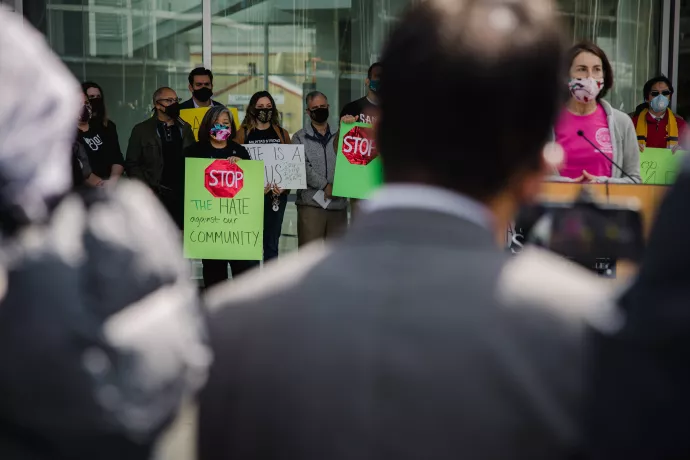
Recognizing International Day for the Elimination of Racial Discrimination
To the UTM community,
Today marks International Day for the Elimination of Racial Discrimination (IDERD), established by the United Nations in recognition of the 1960 Sharpeville Massacre, where police killed sixty-nine protestors at a demonstration against racist apartheid laws in South Africa. The day offers an opportunity to confront the past and ongoing history of racial violence; to affirm a commitment against all forms of racial discrimination and racism; and to call on communities—not only racialized ones—to stand up against injustice.
The shootings on 16 March in Atlanta, where a man murdered eight people, including six women of Asian descent, provides only the latest example of this call’s urgency. As I wrote then, UTM stands in solidarity with members of the Asian community, recognizing that sympathy must lead to systemic change—in the pandemic and beyond. UTM and U of T will continue to work to help realize that change in action, building on the insights of recent discussions, including the “Anti-‘O’ Convo” on Anti-Asian Racism in the Time of COVID-19.
The work of dismantling systemic racism, as Kelly Hannah-Moffat wrote on Friday, “begins with addressing the realities and impacts of colonialism.” Accordingly, the University will continue to focus on the Truth and Reconciliation Commission Steering Committee’s Calls to Action, implementing initiatives in consultation with Indigenous communities, including the new Indigenous Cultural Competency training available to faculty, staff, students and librarians; and the Indigenous Entrepreneurship Program at UTM. Concurrently, the University will address systemic discrimination in our own processes through insights advanced at the Anti-Black Racism Task Force, the Anti-Islamophobia Working Group and the Anti-Semitism Working Group.
The University will also continue to offer resources and supports that recognize the intergenerational impact of systemic racism and enable opportunities for learning and change. I encourage our community to visit the webpages of UTM’s Equity, Diversity & Inclusion Office, U of T’s Anti-Racism and Cultural Diversity Office and U of T’s Office of Human Resources & Equity, all of which promote resources available across the tri-campus system.
Thank you.
Alexandra Gillespie
Vice-President and Principal
University of Toronto Mississauga
